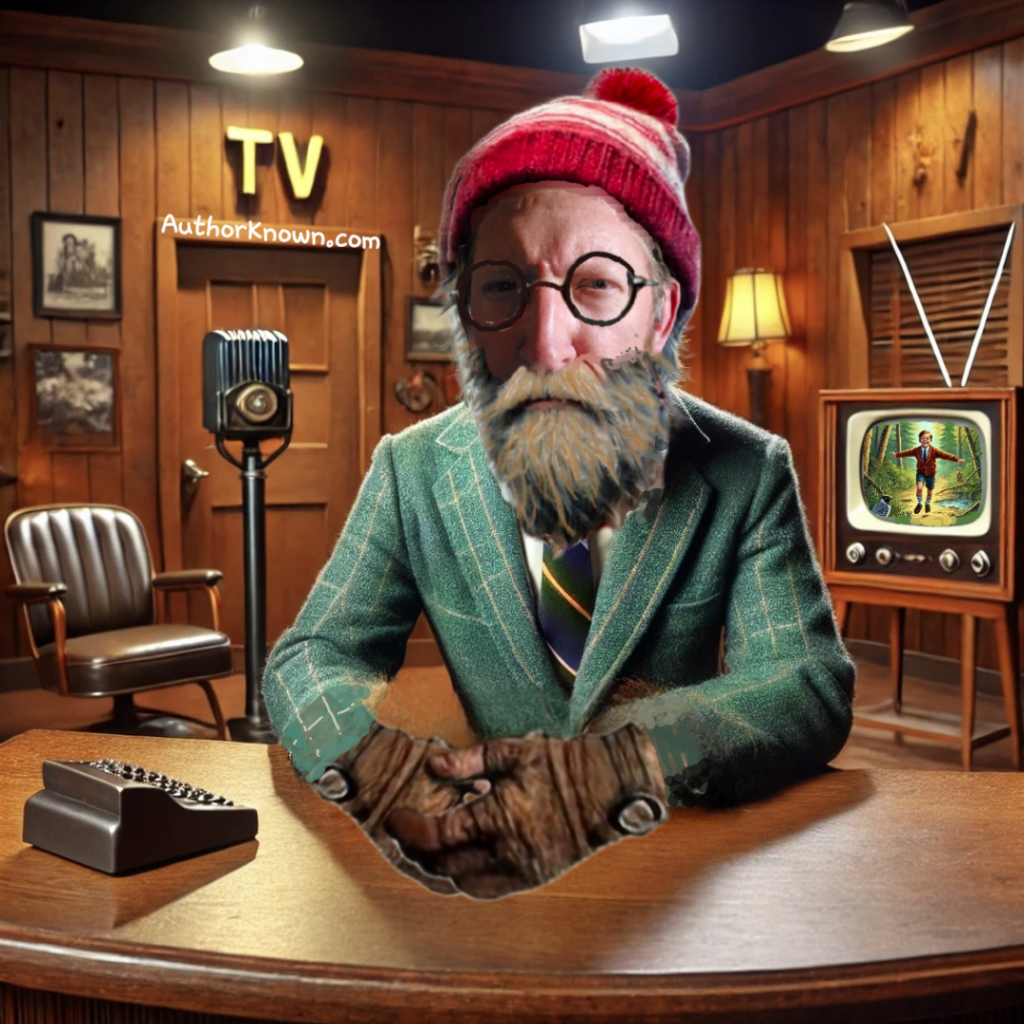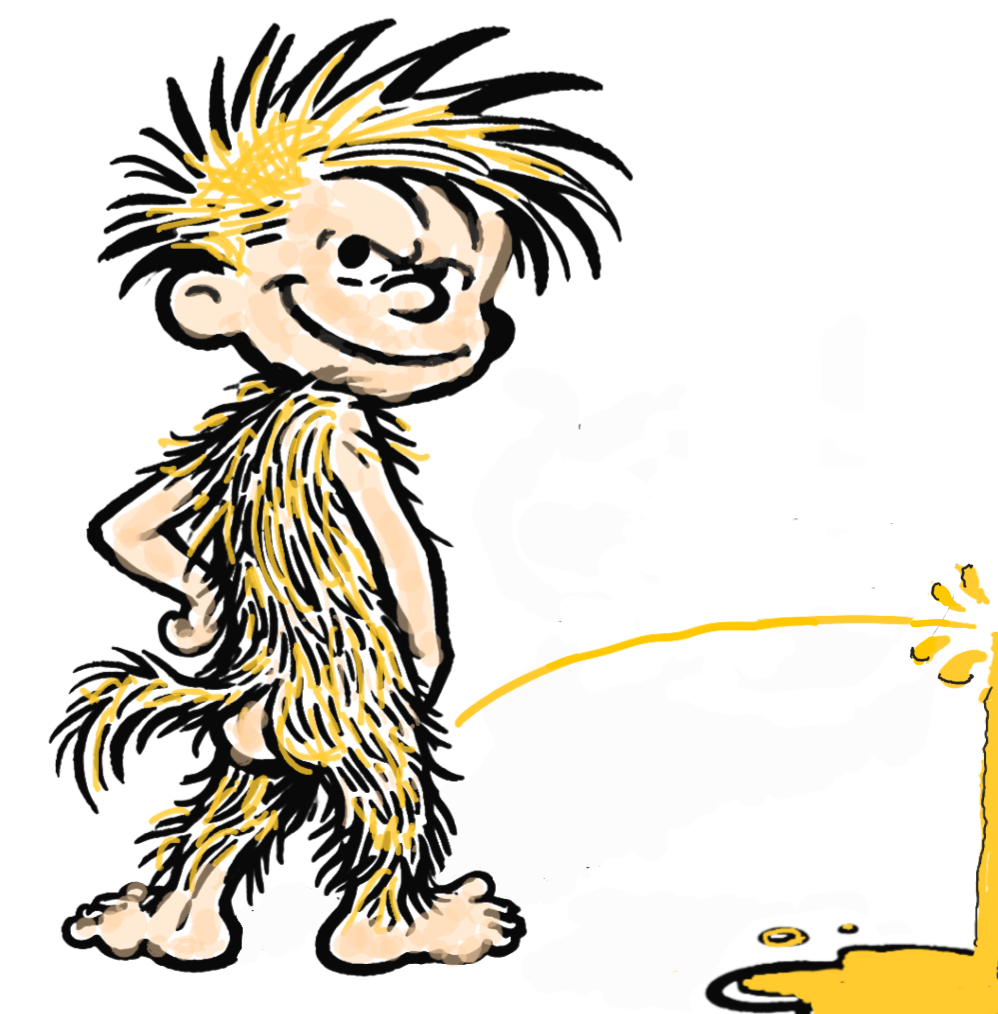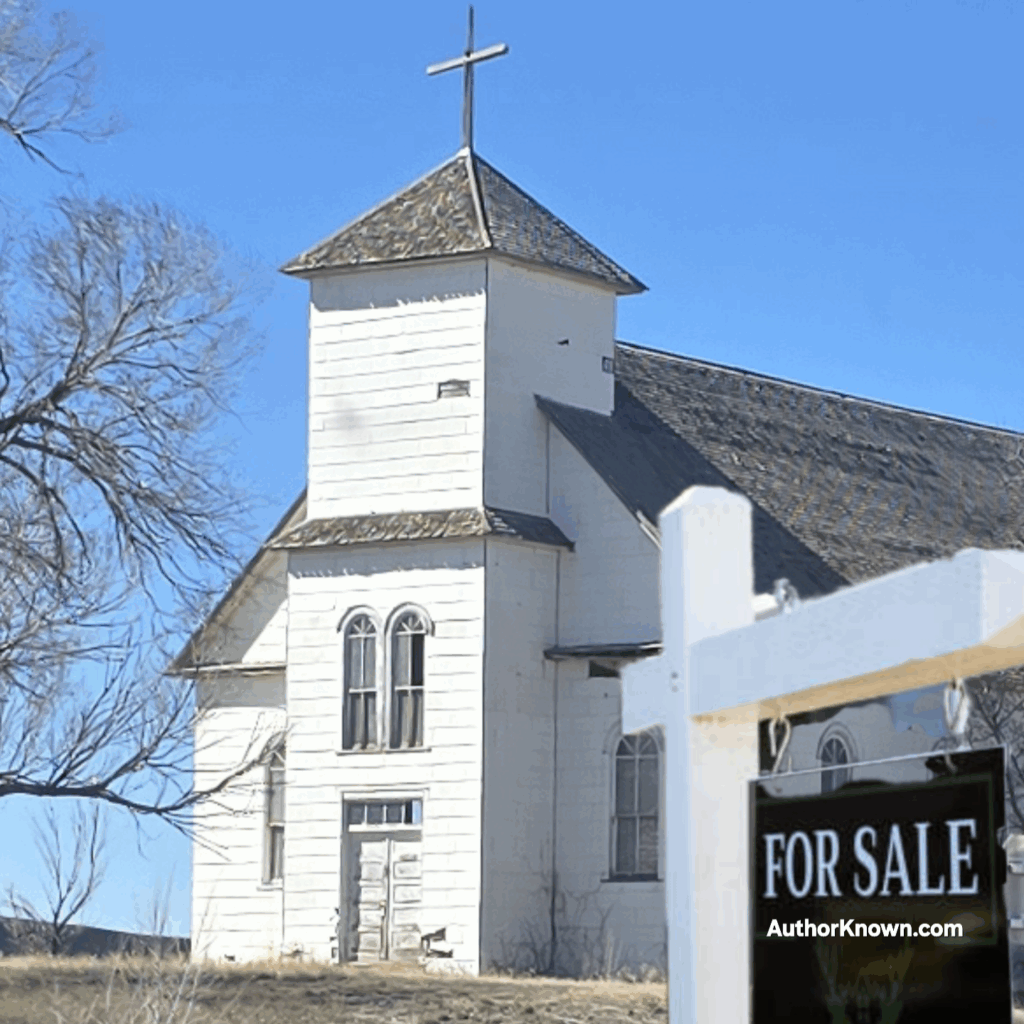If the world had flipped its script—if the young Fred Rogers had not grown up with his quiet, disciplined kindness but instead tore through the forests, his sweater snagging on low-hanging branches, his shoes discarded in favor of feeling the earth beneath his feet—what kind of boy would he have been?
Author’s Note – if you have not read Part 1 of this 2-part series, Fred Rogers and the Seven-Year-Old Sasquatch Boy, A Laugh That Echoes Through Time, be sure to catch it. I don’t think the order matters.
And if the seven-year-old Sasquatch boy had been given the keys to The Neighborhood of Make-Believe, standing at the helm of a kingdom where imagination was the only law—what kind of storyteller would he have become?
The Wildness of Young Fred Rogers
Imagine a Fred Rogers who did not find his way into television studios and piano benches but instead carved his stories into tree trunks with sticks, who whispered lullabies not into a microphone but into the wind, hoping the trees might sing them back to him.
This Fred would have been a wide-eyed boy who saw magic in the smallest things—a beetle crawling along the back of his hand, the way the sun painted fire on the leaves in autumn, the feeling of cool creek water swirling around his ankles. He would have climbed trees with the same patience he later used to tie his shoes on camera, balancing not with hesitation but with the quiet trust that the branches would hold him.
He would still have been kind, still have been gentle—but he would not have learned to package it neatly into sentences that made sense to the adult world. Instead, he would have spoken kindness through actions: sharing a freshly picked apple, helping a bird untangle itself from the brambles, taking the long way home just to watch the fireflies wake up at dusk.
And when he laughed? It would have been the sound of thunder rolling in before a warm summer rain, the kind of laughter that makes your lungs ache in the best way possible. Not soft. Not measured. Just alive.
The Sasquatch Boy and His Television Kingdom
Now, picture the seven-year-old Sasquatch boy stepping into the frame of a television set, sitting down in Mister Rogers’ chair, except it’s not a quiet little room—it’s the whole damn forest. The trolley doesn’t run on tracks; it swings from vines, darting through the trees like a mischievous little bird.
This show wouldn’t begin with a man calmly changing his shoes. No, the Sasquatch boy would run in barefoot, his feet stained with the color of the world he had been running through all day. His opening song wouldn’t be a lullaby—it would be a howl, an open invitation to adventure.
Instead of neatly arranged puppets, the characters of The Neighborhood of Make-Believe would be whatever he could find—hollow logs that became castles, squirrels that became knights, clouds that whispered secret messages in the sky.
He wouldn’t sit children down and tell them how to deal with their emotions with quiet words and carefully chosen metaphors. No, he’d take them straight into the storm, let them feel the wind in their hair, let them scream at the top of their lungs just to prove that their voices were still their own.
And when he looked into the camera, he wouldn’t just tell the children of the world that they were special. He’d dare them to prove it, to go outside, to run, to jump, to climb something impossibly high just to see the world from a different angle.
His message would be the same as Fred’s—you are loved, exactly as you are—but it wouldn’t be whispered through soft melodies. It would be shouted from the tops of trees, echoed in the laughter of children covered in dirt and sweat and scraped knees, knowing they are alive.
A World Where Both Exist
So what happens when we put them together?
What if the young, untamed Fred Rogers had met the seven-year-old Sasquatch boy deep in the woods? Would they have recognized themselves in each other?
Would Fred have taught the Sasquatch boy the beauty of stillness, of kindness spoken gently, of a world that could be changed not only through action but through words? Would the Sasquatch boy have taught Fred how to let go, how to run without knowing where the ground would end, how to laugh so hard it made the birds take flight?
The truth is, they are not so different.
They are both architects of a world that does not want to be ordinary.
One built his kingdom with patience, with soft songs, with delicate, carefully chosen words that made every child feel safe. The other built his kingdom with recklessness, with shouts and leaps and the kind of joy that does not ask permission.
And yet, both of them left something behind.
A map, drawn in footprints and echoes of laughter, leading back to the place where we all once knew exactly who we were.
Discover more from Author Known & A Dumb Idea
Subscribe to get the latest posts sent to your email.



